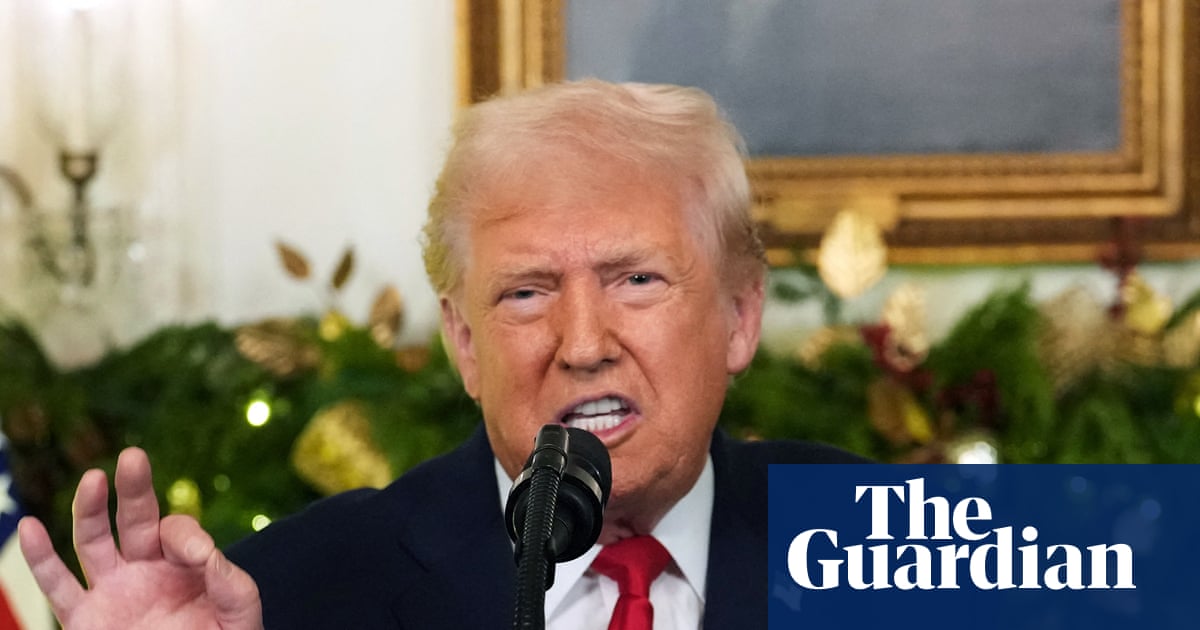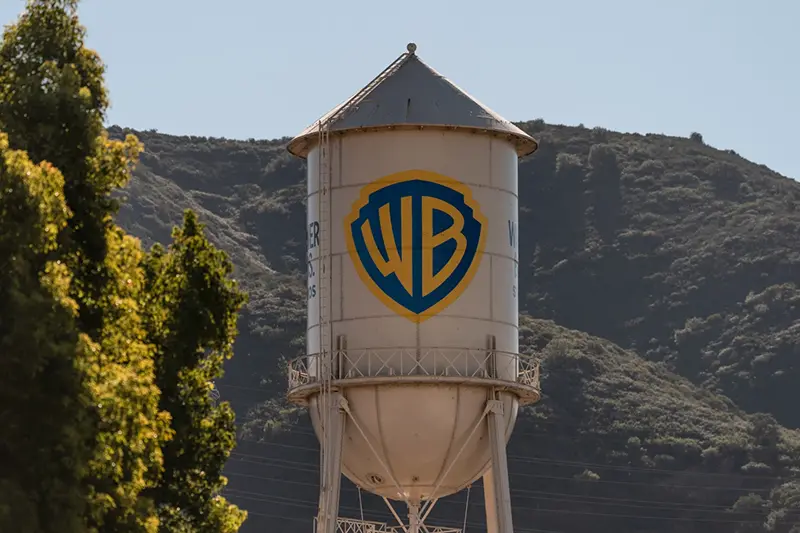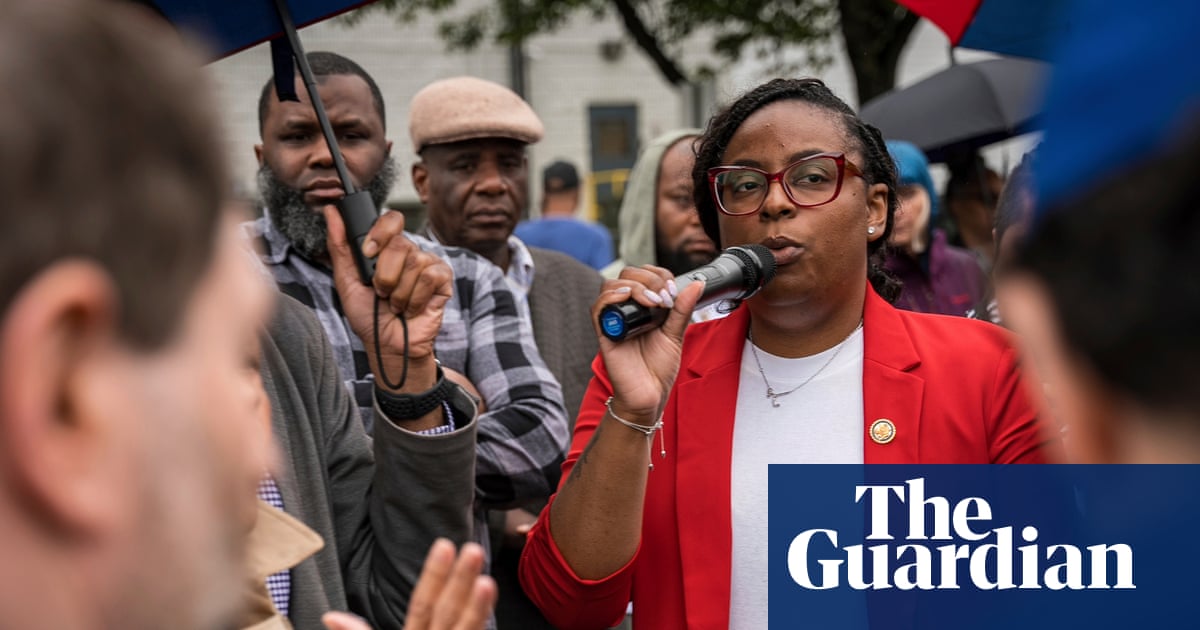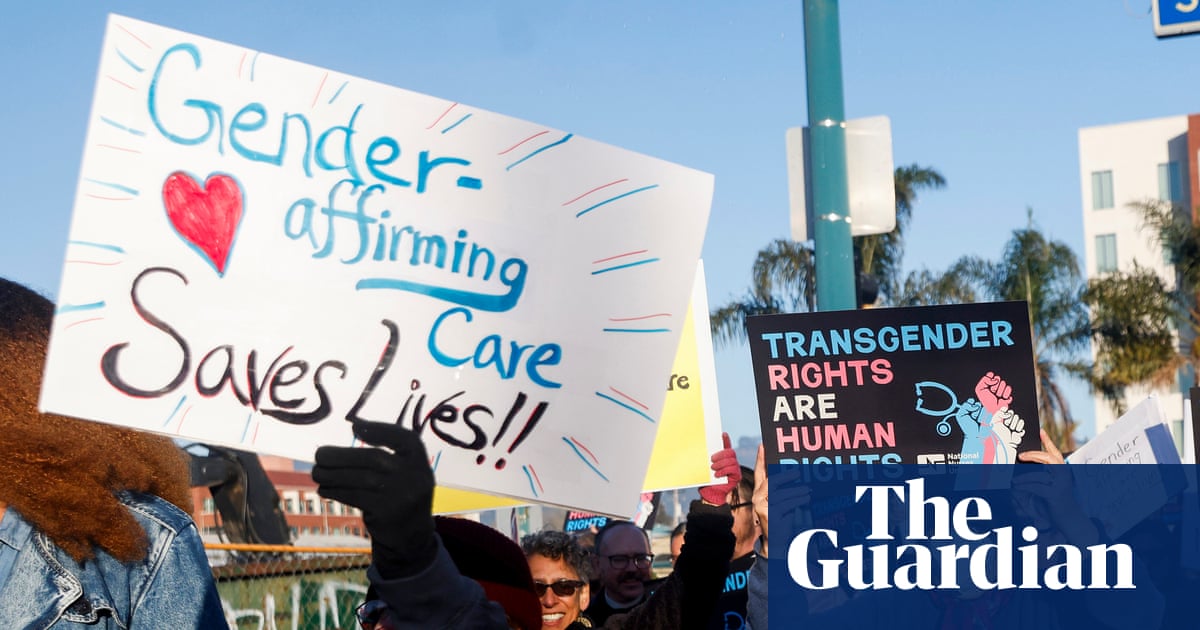As Donald Trump menaces the Open Society Foundations (OSF), which funds a long list of progressive causes, Binaifer Nowrojee, the OSF president, says the global grant-making network will pursue legal action against the federal government if it must.
“Open Society Foundation supports the right of free speech, supports the constitutional rights of organizations to be able to organize themselves, including through peaceful protest and is willing to actually ensure that those rights are upheld, including by going to court if need be,” she said.
Nowrojee spoke to the Guardian at the UN climate talks, known as Cop30, taking place in Brazil this month. She was attending the summit for the first time. Her remarks came as the Trump administration has been targeting the OSF in recent weeks, claiming its founder George Soros is “at the top of everything”.
The federal government has indicated plans to launch justice department and Internal Revenue Service investigations into the foundations, which supports a long list of progressive organizations.
Matthew Nies, a department of justice spokesperson said: “Justice department policy is generally to neither confirm nor deny the existence of an investigation.”
Abigail Jackson, a White House spokesperson, said: “The president’s executive actions to address left-wing violence will employ a whole-of-government approach to end to any illegal activities.”
If Trump’s threats pose risks to those working at OSF, those dangers pale in comparison to the ones many of their grantees face every day, such as environmental defenders facing violence in Latin America.
“There are no threats that Open Society Foundation staff will face that go anywhere near the kinds of threats that our grantee partners are facing on the front lines,” she said. “Our concern is always first and foremost for those who are working in the most difficult spaces who are often at risk of their lives and actually end up being killed.”
Environmental advocates in the US do not often face those mortal risks. But some are uneasy amid intimidation from the federal government. The justice department’s September instructions to US attorneys to investigate OSF reportedly cited as evidence a report by the rightwing group Capital Research Center, which zeroed in on some climate-focused OSF grantees such as the progressive youth-led Sunrise Movement and the climate justice activist network Grassroots Global Justice Alliance.
This month, House Republicans also demanded some liberal non-profits with ties to OSF turn over documents related to their alleged support of “antifa” – the decentralized antifascist movement.
Asked what advice she would offer grantees facing such threats, Nowrojee said: “Open Society Foundations supports the right of free speech, and it doesn’t have to be speech we agree with.” As long as they are operating within the law, she said OSF will stand behind them.
“In the event that a grantee is involved in violence or other efforts that are inimical to the purpose of peaceful protest, then they should be held responsible for that, but there are checks and balances in a court of law to do that,” she said. “What we don’t want to see is parts of the sector being silenced because their views differ from those in power.”
If a grantee does violate the law, “they have to take agency” and responsibility, Nowrojee said. But otherwise, respect for grantees also means allowing them the ability to operate freely, she said.
“We do not at Open Society Foundations dictate to them every single thing they should be doing, because one has to understand that grantees also have a level of agency,” she said. “As long as they’re in compliance with their grant letter and the purpose of the grant, we do not interfere in the details of how their [work is] enacted.”
This year’s UN climate summit is the first to be held in the Amazon rainforest, something Nowrojee said is “remarkable”.
“You begin to see the people whose lives are being impacted on the front lines,” she said.
The talks have seen an outpouring of protest inside and outside the conference center, held by civil society groups including Indigenous communities from the Amazon. Those demonstrations set this installment of the talks apart from the past several years’, which were held in the more autocratic states of Egypt, the United Arab Emirates and Azerbaijan.
“We have seen communities here who have come out in large numbers, Indigenous communities, Afro-descendant communities, to talk about the fact that they are so excluded from these debates, and how they can actually have a larger voice,” she said.
The fact that “millions and millions of citizens around the world are using their voice and their right to protest” has helped keep pressure on governments and the private sector to take on the climate crisis, she said.
Trump pulled the US from the UN Paris climate agreement in January. And for the first time this year, the federal government refused to send a delegation to the climate talks. It’s a short-sighted move, Nowrojee said, because the refusal to engage in climate policy will not prevent the climate crisis from harming Americans.
“In the end, there’s such an interdependence on this planet,” she said. “Our futures are intertwined.”
The guardian.org receives funding from OSF for reporting on climate and democracy; all editorial is independent

 German (DE)
German (DE)  English (US)
English (US)  Spanish (ES)
Spanish (ES)  French (FR)
French (FR)  Hindi (IN)
Hindi (IN)  Italian (IT)
Italian (IT)  Russian (RU)
Russian (RU)  3 weeks ago
3 weeks ago
























Comments